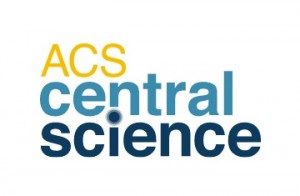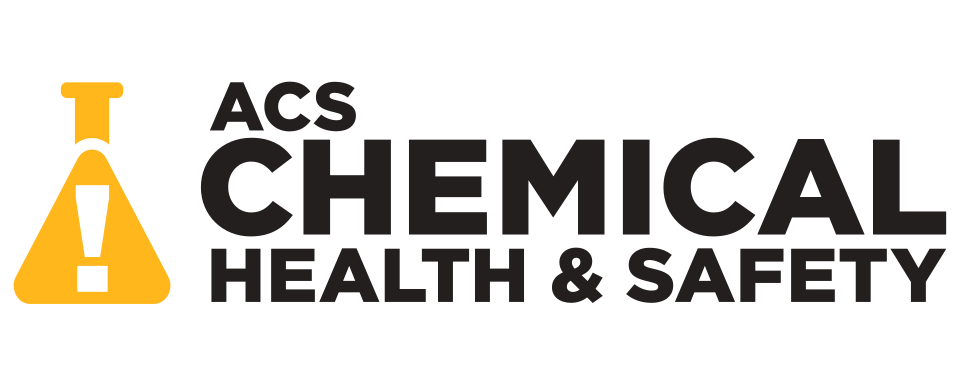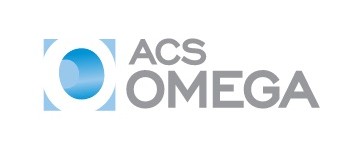Max Planck Society, Max Planck Digital Libary
Germany
For more information about this agreement, see the ACS press release
Which ACS journals are included in this agreement?
The table below shows the ACS journals where your article publishing charge (APC) should be covered by your institution. Unless otherwise stated, this agreement covers 100% of the APC when selecting a CC BY open access license.
| Journal / Collection | Included in Agreement? | |
|---|---|---|
  |
ACS Central Science ACS Chemical Health & Safety |
Diamond open access: Free to publish and read |
 |
ACS Omega | |
 |
ACS Au family (including JACS Au) | |
     |
Artificial PhotosynthesisChem & Bio EngineeringEnvironmental Health PerspectivesPhoton SciencePolymer Science & Technology | Waivers available: see individual journals for information |
| ACS hybrid journals | ||
Publish open access at no cost
If you are a researcher associated with any of the listed institutions, and are the submitting corresponding author, you will have the opportunity to publish your research in supported ACS journals under a CC BY open access license with your institution’s support.
Access to all ACS journals
In addition to open access publication benefits, participants in this special agreement will have full-text access to all current ACS Publications journal content.
Participating Institutions (86)
- Bibliotheca Hertziana - Max-Planck-Institut für Kunstgeschichte / Bibliotheca Hertziana - Max Planck Institute for Art History
- Forschungsstelle Soziale Neurowissenschaften / Social Neuroscience Lab
- Friedrich-Miescher-Laboratorium für biologische Arbeitsgruppen in der Max-Planck-Gesellschaft / Friedrich Miescher Laboratory of the Max Planck Society
- Fritz-Haber-Institut der Max-Planck-Gesellschaft / Fritz Haber Institute of the Max Planck Society
- Generalverwaltung der Max-Planck-Gesellschaft / Administrative Headquarters of the Max Planck Society
- Kunsthistorisches Institut in Florenz - Max-Planck-Institut / Art History Institute in Florence - Max-Planck-Institute
- Max Planck Digital Library
- Max-Planck-Forschungsstelle für Neurogenetik / Max Planck Research Unit for Neurogenetics
- Max-Planck-Forschungsstelle für Pathogene / Max Planck Research Unit for Pathogens
- Max-Planck-Institut für Astronomie / Max Planck Institute for Astronomy
- Max-Planck-Institut für Astrophysik / Max Planck Institute for Astrophysics
- Max-Planck-Institut für ausländisches öffentliches Recht und Völkerrecht / Max Planck Institute for Comparative Public Law and International Law
- Max-Planck-Institut für ausländisches und internationales Privatrecht / Max Planck Institute for Comparative and International Private Law
- Max-Planck-Institut für Bildungsforschung / Max Planck Institute for Human Development
- Max-Planck-Institut für Biochemie / Max Planck Institute of Biochemistry
- Max-Planck-Institut für Biogeochemie / Max Planck Institute for Biogeochemistry
- Max-Planck-Institut für Biologie / Max Planck Institute for Biology
- Max-Planck-Institut für Biologie des Alterns / Max Planck Institute for the Biology of Ageing
- Max-Planck-Institut für biologische Intelligenz / Max Planck Institute for Biological Intelligence
- Max-Planck-Institut für biologische Kybernetik / Max Planck Institute for Biological Cybernetics
- Max-Planck-Institut für Biophysik / Max Planck Institute of Biophysics
- Max-Planck-Institut für Chemie (Otto-Hahn-Institut) / Max Planck Institute for Chemistry (Otto Hahn Institute)
- Max-Planck-Institut für chemische Energiekonversion / Max Planck Institute for Chemical Energy Conversion
- Max-Planck-Institut für chemische Ökologie / Max Planck Institute for Chemical Ecology
- Max-Planck-Institut für Chemische Physik fester Stoffe / Max Planck Institute for Chemical Physics of Solids
- Max-Planck-Institut für demografische Forschung / Max Planck Institute for Demographic Research
- Max-Planck-Institut für die Physik des Lichts / Max Planck Institute for the Science of Light
- Max-Planck-Institut für Dynamik komplexer technischer Systeme / Max Planck Institute for Dynamics of Complex Technical Systems
- Max-Planck-Institut für Dynamik und Selbstorganisation / Max Planck Institute for Dynamics and Self-Organization
- Max-Planck-Institut für empirische Ästhetik / Max Planck Institute for Empirical Aesthetics
- Max-Planck-Institut für ethnologische Forschung / Max Planck Institute for Social Anthropology
- Max-Planck-Institut für evolutionäre Anthropologie / Max Planck Institute for Evolutionary Anthropology
- Max-Planck-Institut für Evolutionsbiologie / Max Planck Institute for Evolutionary Biology
- Max-Planck-Institut für extraterrestrische Physik / Max Planck Institute for Extraterrestrial Physics
- Max-Planck-Institut für Festkörperforschung / Max Planck Institute for Solid State Research
- Max-Planck-Institut für Geoanthropologie / Max Planck Institute for Geoanthropology
- Max-Planck-Institut für Gesellschaftsforschung / Max Planck Institute for the Study of Societies
- Max-Planck-Institut für Gravitationsphysik (Albert-Einstein-Institut) / Max Planck Institute for Gravitational Physics (Albert Einstein Institute)
- Max-Planck-Institut für Herz- und Lungenforschung (W.G. Kerckhoff-Institut) / Max Planck Institute for Heart and Lung Research (W. G. Kerckhoff Institute)
- Max-Planck-Institut für Hirnforschung / Max Planck Institute for Brain Research
- Max-Planck-Institut für Immunbiologie und Epigenetik / Max Planck Institute of Immunobiology and Epigenetics
- Max-Planck-Institut für Infektionsbiologie / Max Planck Institute for Infection Biology
- Max-Planck-Institut für Informatik / Max Planck Institute for Informatics
- Max-Planck-Institut für Innovation und Wettbewerb / Max Planck Institute for Innovation and Competition
- Max-Planck-Institut für Intelligente Systeme / Max Planck Institute for Intelligent Systems
- Max-Planck-Institut für Kernphysik / Max Planck Institute for Nuclear Physics
- Max-Planck-Institut für Kognitions- und Neurowissenschaften / Max Planck Institute for Human Cognitive and Brain Sciences
- Max-Planck-Institut für Kohlenforschung / Max Planck Institute of Coal Research
- Max-Planck-Institut für Kolloid- und Grenzflächenforschung / Max Planck Institute of Colloids and Interfaces
- Max-Planck-Institut für marine Mikrobiologie / Max Planck Institute for Marine Microbiology
- Max-Planck-Institut für Mathematik / Max Planck Institute for Mathematics
- Max-Planck-Institut für Mathematik in den Naturwissenschaften / Max Planck Institute for Mathematics in the Sciences
- Max-Planck-Institut für medizinische Forschung / Max Planck Institute for Medical Research
- Max-Planck-Institut für Meteorologie / Max Planck Institute for Meteorology
- Max-Planck-Institut für Mikrostrukturphysik / Max Planck Institute of Microstructure Physics
- Max-Planck-Institut für molekulare Biomedizin / Max Planck Institute of Molecular Biomedicine
- Max-Planck-Institut für molekulare Genetik / Max Planck Institute for Molecular Genetics
- Max-Planck-Institut für molekulare Pflanzenphysiologie / Max Planck Institute of Molecular Plant Physiology
- Max-Planck-Institut für molekulare Physiologie / Max Planck Institute of Molecular Physiology
- Max-Planck-Institut für molekulare Zellbiologie und Genetik / Max Planck Institute of Molecular Cell Biology and Genetics
- Max-Planck-Institut für Multidisziplinäre Naturwissenschaften / Max Planck Institute for Multidisciplinary Sciences
- Max-Planck-Institut für Nachhaltige Materialien GmbH / Max Planck Institute for Sustainable Materials GmbH
- Max-Planck-Institut für Neurobiologie des Verhaltens – caesar / Max Planck Institute for Neurobiology of Behavior – caesar
- Max-Planck-Institut für Pflanzenzüchtungsforschung / Max Planck Institute for Plant Breeding Research
- Max-Planck-Institut für Physik (Werner-Heisenberg-Institut) / Max Planck Institute of Physics (Werner Heisenberg Institute)
- Max-Planck-Institut für Physik komplexer Systeme / Max Planck Institute for the Physics of Complex Systems
- Max-Planck-Institut für Plasmaphysik (inkl. MPCDF) / Max Planck Institute of Plasma Physics (incl. MPCDF)
- Max-Planck-Institut für Polymerforschung / Max Planck Institute for Polymer Research
- Max-Planck-Institut für Psychiatrie / Max Planck Institute of Psychiatry
- Max-Planck-Institut für Psycholinguistik / Max Planck Institute for Psycholinguistics
- Max-Planck-Institut für Quantenoptik / Max Planck Institute of Quantum Optics
- Max-Planck-Institut für Radioastronomie / Max Planck Institute for Radio Astronomy
- Max-Planck-Institut für Rechtsgeschichte und Rechtstheorie / Max Planck Institute for Legal History and Legal Theory
- Max-Planck-Institut für Sicherheit und Privatsphäre / Max Planck Institute for Security and Privacy
- Max-Planck-Institut für Softwaresysteme / Max Planck Institute for Software Systems
- Max-Planck-Institut für Sonnensystemforschung / Max Planck Institute for Solar System Research
- Max-Planck-Institut für Sozialrecht und Sozialpolitik / Max Planck Institute for Social Law and Social Policy
- Max-Planck-Institut für Steuerrecht und öffentliche Finanzen / Max Planck Institute for Tax Law and Public Finance
- Max-Planck-Institut für Stoffwechselforschung / Max Planck Institute for Metabolism Research
- Max-Planck-Institut für Struktur und Dynamik der Materie / Max Planck Institute for Structure and Dynamics of Matter
- Max-Planck-Institut für terrestrische Mikrobiologie / Max Planck Institute for Terrestrial Microbiology
- Max-Planck-Institut für Verhaltensbiologie / Max Planck Institute of Animal Behavior
- Max-Planck-Institut für Wissenschaftsgeschichte / Max Planck Institute for the History of Science
- Max-Planck-Institut zur Erforschung multireligiöser und multiethnischer Gesellschaften / Max Planck Institute for the Study of Religious and Ethnic Diversity
- Max-Planck-Institut zur Erforschung von Gemeinschaftsgütern / Max Planck Institute for Research on Collective Goods
- Max-Planck-Institut zur Erforschung von Kriminalität Sicherheit und Recht / Max Planck Institute for the Study of Crime Security and Law
I’m a prospective author, how do I publish open access?
For step-by-step instructions on how to publish open access under your institution’s read and publish agreement, please see below:
Automatic article deposit in PubMed Central
Authors who elect to publish open access will automatically have their final published article sent for deposit in PubMed Central. Please note all contents accepted for US PubMed Central are automatically mirrored on Europe PMC — nothing more is required on your part. Authors publishing open access under this agreement are also free to deposit their accepted manuscript in their institutional and/or research funder’s designated open access repository.
Immediate public access to research
Some research funders require authors to make a version of their research article available in a public open access repository immediately upon publication.
You may see this referred to as ‘zero-embargo green open access’.
You or your co-authors’ funder(s) may require you to make a version of your manuscript available in an open access repository immediately upon publication. You will need to check the terms of all applicable grants, and/or communicate with your grant officer, to confirm if such a policy applies to your work.
Publishing open access through your institution’s agreement helps you comply with these mandates. ACS Publications will automatically submit the version of record of your article to PubMed Central, and you and your co-authors are free to post your accepted manuscript to any other repository or service required by your funder(s). Combined with public access to your research data, this should ensure compliance with any applicable open access or public access policy.